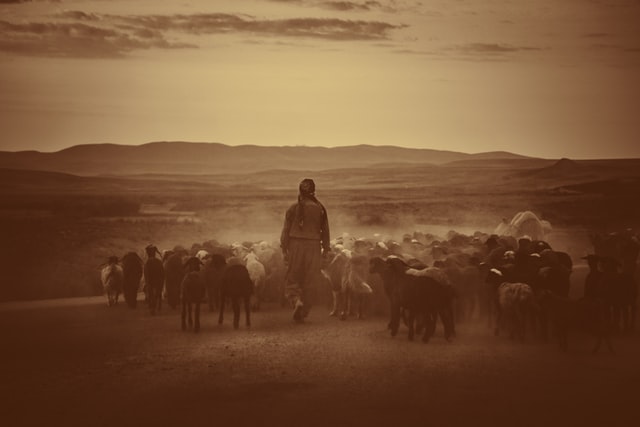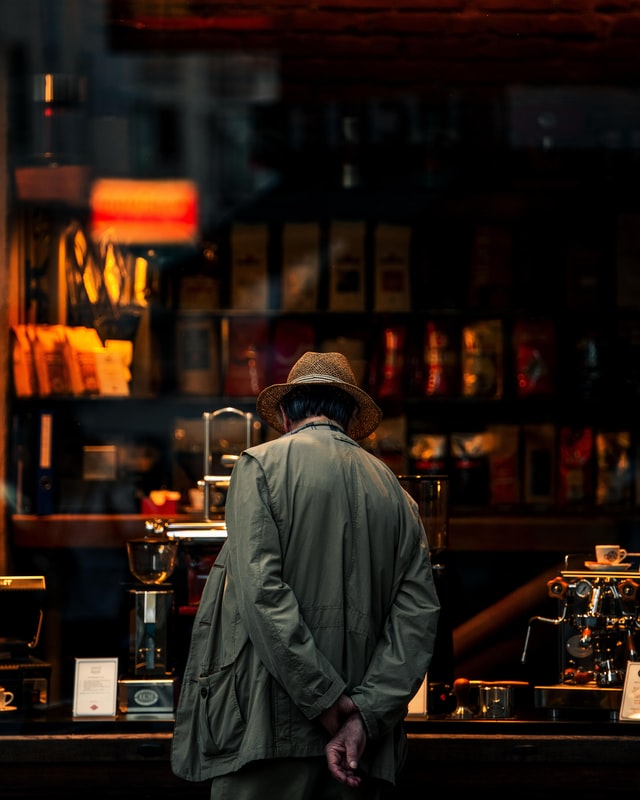When the Generation Z member of our family bursts out from her parent’s front door, and runs toward me, arms open wide yelling, “Grandma!” I’ve graduated. I’m Ivy League. I did not attend Harvard, Yale or Princeton, but she is my diploma.
Grandchildren are a yardstick we measure ourselves by.
A kid once asked his parents, “Why did God let the dogs (that killed the bunnies) in to the pen? I bet they sneaked in when he wasn’t looking.”[1] One day as a kindergartener she asked me, “Is God still alive?”
When asked what has been your biggest obstacle to overcome? A Generation X millionaire replied, “My childhood.” Childhood is a balloon it is possible to both inflate or deflate.
An actor’s fears of being abandoned are the same as children’s.[2] The audience—like parents– can “starve him of affection or reward with approval, what the child gets from parents—rapt focus, adoration, a sense of self,” and what our Gen Z gets from what a grandparent gives. The audience—like the parent—“needs to be won over.” Frank Sinatra[3] would cajole and manipulate an audience, needing love appreciation and acknowledgment just like he would from his mother.
“Marriage is a law to protect children,” their Las Vegas judge told Cher & Gregg Allman in their wedding ceremony. One day my Gen Z granddaughter said, “I wish you had kids.” She was adamantly opposed when I told my granddaughter knife started with the letter ‘k.’ Similarly I told my teacher, “There’s no ‘l’ in the word calf!” You ask my dad! He’s a farmer. He’ll tell you!”
“An angry out of control child fears the world isn’t safe. He’s running things and he isn’t confident his parents will be able. We do them no favors by trying to protect them by giving them what they want all the time.”[4]
We picked up a little boy with a broken leg back when I rode ambulance and he asked, “Will I be on TV. news tonight?” “Born helpless and dependent, [a child] wins control over himself only through the education and sustenance given him by his people. “ [5] “Some parenting serves the needs of the parent at the expense of the child.” [6] Although Gen Z’s contemporary culture differs from their Grandparent’s we can fill the history gap. “Tell me a story!” my grandson asks.
Research has proven that even 5 year olds have a strong sense of right and wrong and appreciate rules, yet can have empathy,[7] like the time my granddaughter offered me half her sandwich, or the time she told her mother she did not want me left out of a family event.
No one wants a child who does not do what he is told.[8] Frustrated desire (“No, you can’t.”) has to be tolerated in order to live in social commune. My granddaughter resting on my shoulder shows trust. Falling asleep in my arms can fill me with warmth. A baby’s laugh, non-pareil, is a pretty sound. “Childhood is a “delicate tissue.” [9] Remember that a child operates on what someone dubbed it ‘cow time’ –they come when they please in their own good time when they’re good and ready. A woman once confided to me, “I’m a good grandparent for about 4 hours.”
When my Gen Z granddaughter was 6 years old she told her brother, “Mom and Dad will be so happy at us,” for cleaning up. A different 6 year old girl left a suicide note that said, “I’m sorry.” “I’m sad for what I do.” “Nobody likes me.” Child protection services had placed the girl nine months in foster care. The greatest terror a child can have is that he is not loved and rejection is the hell he fears. [10]
Being a grandparent marks a tendency to gush, romanticize, idealize and delude. People who romanticize grandchildren (“Aren’t they cute!?”) don’t do the day-to-day discipline. “We don’t smear our mashed potatoes on the table!” A workmate once foisted her Generation X grandson’s picture in my face. I said, “It’s a kid.” Boy, did she chew me out. Another workmate said to me, “You just wait ‘til you have grandchildren of your own! You’ll see!” As a grandparent I am a shareholder with a vested interest in Generation Z outcome, my stock. The ‘endowment effect’ means I am more likely to believe my Generation Z grandchildren’s blood is precious; their seed, better.
One week my Generation Z granddaughter asked me, “How come you don’t have a daddy at your house?” I didn’t know how to answer. She told her mother, “I was made for you,” and in her sleep she said, “I’m not sharing.” She informs me that the design on her t-shirt is not her imaginary friend. “No, “she says, “E.D. lives inside of me.” One day her brother stuck a sharp object in her ear; she turned to him and scolded, “Naughty!”
When she was 4 ½ year old and I told her that an adult I knew had died, my Generation Z asked, “What did she die from? Did she fall in a lava pit?” When she discussed the Big Slide she told me, “I almost cried the happiness of tears.” She will high-tail it at the sight of a spider, while her brother dangles a snake in front of me.
The Postal Service tells us grannies are their worst offenders. They put candy in the mail for the grandkids, their fat envelopes hit the flat rollers, jam up the conveyor belt, and all the other envelopes behind them waiting in line to be processed fly up in the air.
Overheard: In a family of two children the younger, age 6, asks his mom, “Why didn’t you have me first?”
The Jesuits preached give me the first 6 years of a child’s life and you can have the rest. Parenting is a slight chance for a short time to make a big difference. Generation Z are a work-in-progress. Man: his first million years [11] defines love as ‘behavior which confers upon others survival benefits in such a manner that their potentialities for being human are afforded an opportunity for optimum development.’ “You can choose your son no more than you can choose your father.” [12]
The sign read, “Donate old cell phones here.” Cell phones are used. They are not old. Baby Boomers are old, Social Security eligible old. My Generation Z grandchildren are facile with their handheld device. Few people change their fundamental nature as adults,”[13] but skills and knowledge fade. I am not as facile as my Generation Z grandchildren, nor as pliant. We are debased and humiliated with age, with our weakness, with our shortcomings and inadequacies revealed. “That kid is who you still are inside,” Deborah Tannen wrote. “Most of us are junior high school kids who aged.” Memory is no longer punctual; words no longer readily available. They come eventually, now we have to wait. We lose 30% relying on memory alone. When we finally yank the mind’s file drawers open memories spill out like butterflies.
We can’t hold more than one thought at a time. Retirees, like day old bread, must make way, make room for Generation Z. Our resume is moot. One retiree caught reading his trade’s journal said, “I gave them 30 years of my life!” Judge L.G. A. told me, “With the robe on people will tip their hat, ‘Good morning, Your Honor.’ Without the robe I’m just another old man.” A musician said she will not step away from the music of her generation even when she can no longer play due to injury. What will she do with all that background? “You find some outlet.” she said.
We measure worth by competence, accomplishment and mastery. Losing that driver’s license after 50 years of roads is an affront to pride. Loss of self-worth stabs self-esteem as athlete. In youth we throw the winning pass, but arms atrophy with age. “Who will cherish me when I am old and frightened,” Iris Murdoch wrote. We hope it’s the next generation, our grandchildren. There’s this need to stay relevant “to feel part of a community which accepts him/her and within which he/she can be understood.” [14] As a herd and coupling animal we need people in close proximity, we get strange when we don’t. Isolated, we get “self-destructive.” [15] When we’ve lost our raison d’etre, we are prone to depression. Low lithium levels indicate depression. The “opposite of depression is vitality.” [16] Good life is maximum independence,[17] unhappiness is to be “bored, lonely,” helpless to change. I get lonely when I don’t hear from my Generation Z or their parents, but realize they have their lives to live now.
Solitary confinement is the worst of prison tortures. [18]“No torture is worse than [years of] solitary confinement” Viet Nam Era Conflict P.O.W., R. Risner (1926-2013) wrote. Death, the croupier, last one out, lights off, snatches that most valued asset: my mind, our brain.
[1] James Agee
[2] John Lahr’s essay on stage fright
[3] Shirley Maclaine
[4]Laura Facinelli (Copley News Service, 7/16/95.
[5] Peter Labore.
[6] J.H.Driggs.
[7] Source: J. Willms, Monitor)
[8] Alec Wilkinson, “Sam,” Esquire’s Big Book of Great Writing
[9] Lauren Groff wrote.
[10] John Steinbeck
[11] Ashley Montagu
[12] Anthony Mara
[13] Jon Franklin
[14] Amin Malouf
[15] Professor Pepper Schwartz
[16] Andrew Solomon
[17] Dr. Bill Thomas
[18] Former Commissioner of MN prisons.
Elizabeth’s work was accepted for publication by Antonym, Bluntly, Coffin Bell, Denver, Drunk Monkey, Enizigam, Haute Dish, Helen Lit, Horseshoes and Hand Grenades, In Parenthese, Indie Blue, Meat for tea, Obra/Artifact, Denver Quarterly, Open Arts Forum, Oregon State’s “45th Parallel,” Poached Hare, Underwood.












